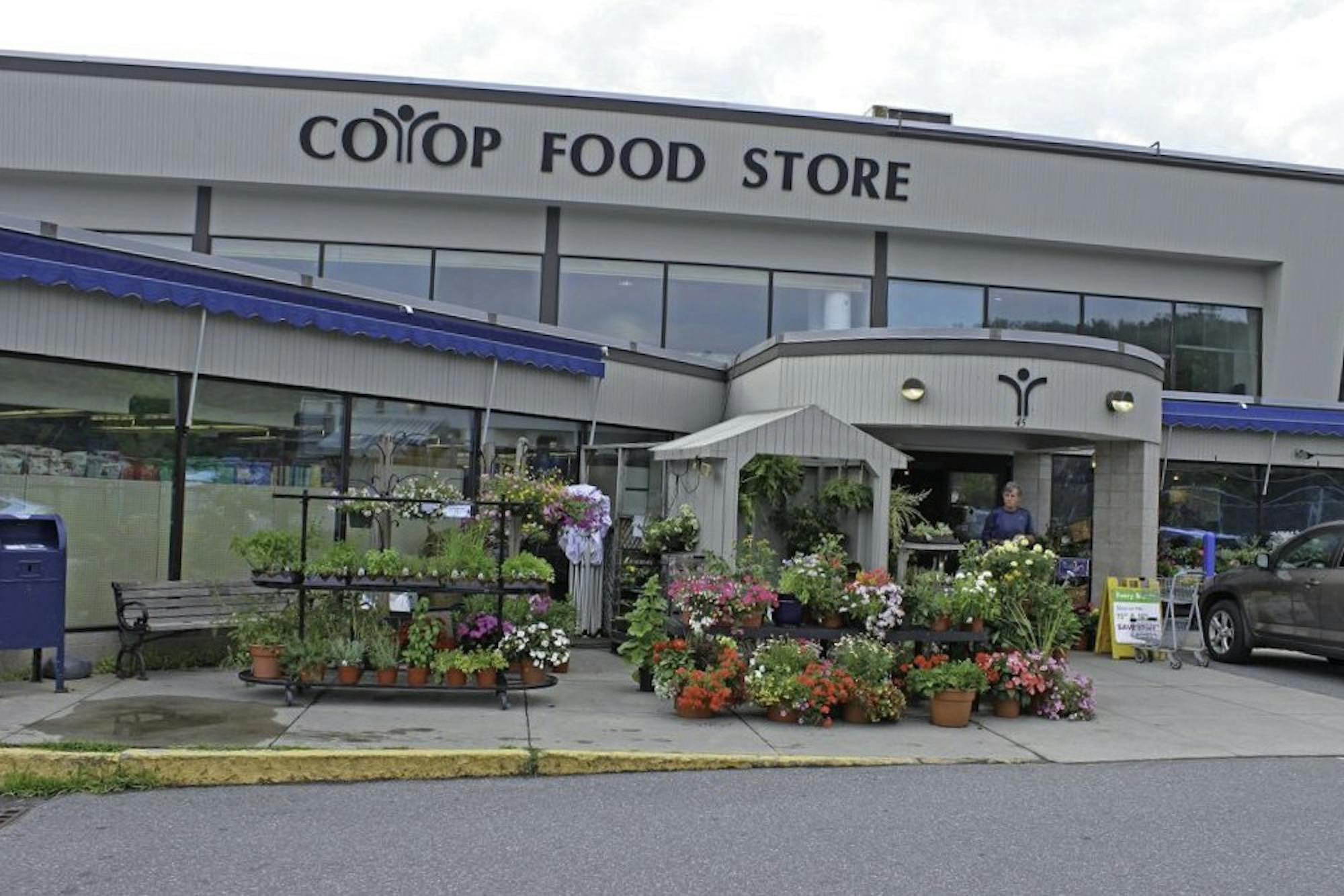Food prices in Hanover are 4% above national average, according to the Council for Community and Economic Research.
Compared to stores in nearby towns, Hanover’s higher prices make shopping there a less practical option to some. The Dartmouth visited the Co-op Food store locations in Hanover and Lebanon, N.H., to speak with shoppers about their experiences with high food prices.
Norwich resident and regular Hanover shopper John Farrell explained that he only chooses to shop at the Co-op “for convenience … and for certain items,” citing town price increases. Farrell added that he thinks the cost of food is one of the “things that keep people from living in Hanover.”
Dartmouth skiing coach Brayton Osgood agreed.
“Food is definitely expensive right now,” he said. “It feels like everything in Hanover is expensive, not just food.”
Hanover’s high costs of living contribute to higher food prices, economics professor Bruce Sacerdote explained in an email statement to The Dartmouth. Housing and land costs are “built into” prices at grocery stores and restaurants.
“It does seem we pay somewhat higher prices for groceries and restaurant meals than the average town in New Hampshire and that makes sense to me,” Sacerdote wrote. “The Upper Valley has higher real estate costs and higher wages … because housing is relatively scarce and expensive, workers need higher wages to afford to live here and that in turn impacts prices."
However, some students feel that West Lebanon grocery options are more affordable, including Eden Cho ’26, who lives at Summit on Juniper — a Dartmouth-owned apartment complex in Lebanon, N.H.
“When you have access to transportation to West Lebanon, a lot of things are much more affordable,” Cho said. “However, if you’re a student just staying on campus, going to Main Street all the time, the options are quite limited.”
Some students said the price of food in Hanover causes them to eat on campus more often. Richard Perez ’28, who said his meal plan is covered by financial aid, said he primarily eats on campus.
“I will only really go into town for special occasions just because that money is coming out of my own pocket,” Perez said. “The money I’m spending on campus is coming from the College, so it’s not putting too much of a financial burden on myself.”
Kaia Culotta ’25 said that she “typically” eats on campus, only going off campus for travel and meals with friends.
“I typically eat on campus more as opposed to going off campus,” she said.
Dartmouth Dining meal plan pricing is “not just based on food prices in the local Hanover area,” Dartmouth Dining director Jon Plodzik wrote in an email statement to The Dartmouth.
“The pricing of meal plans and snacks are based on the cost of the products and those associated with delivering such services,” Plodzik wrote.
Emily Hemelt ’25 said that she’s caught between the high prices of Dartmouth Dining and Hanover. High meal prices at College dining have led her to cook more, she said, pointing out that “basic meal items aren’t covered by a swipe.”
Dartmouth Dining is “definitely overpriced,” she said. “Prices increasing haven’t steered me away from Dartmouth Dining locations because it’s so convenient, as opposed to going into town, but I will say it has made me cook more.”
However, although food in town may be less convenient and more expensive, some students, like Perez, prefer it to Dartmouth Dining.
“I definitely do think the quality in town is better compared to Dartmouth Dining,” Perez added. “If it was feasible, I would definitely eat more in town.”




